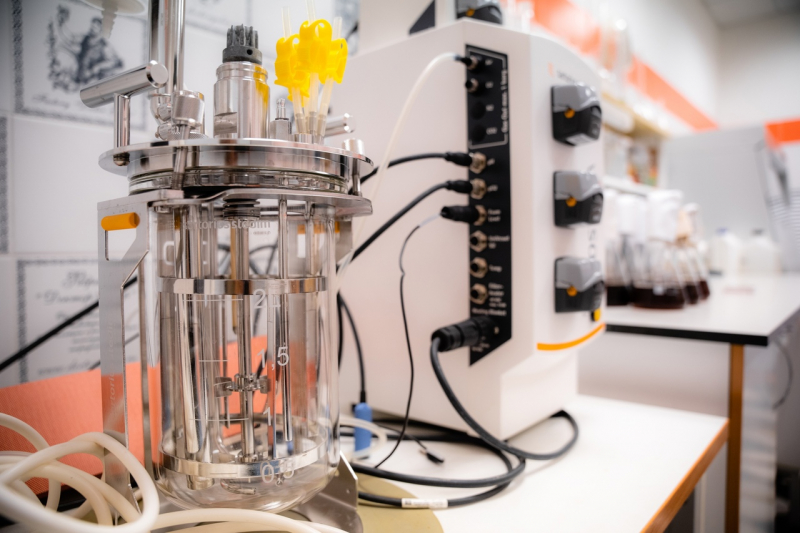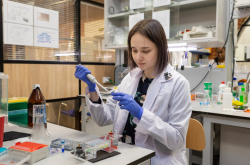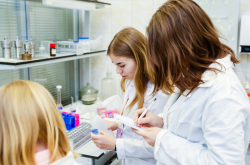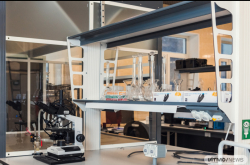Over the semester of taking the course, students of the Faculty of the Technological Management and Innovations (FTMI) conducted market research and created promotion plans for projects created at the School of Biotechnology and Cryogenic Systems.
“Not only the course itself is important, but also the approach that we used. I’d say it is simultaneously interdisciplinary and practice-oriented. The course was built in such a way that after the key topics were covered in lectures, students built up on their knowledge of project management and strategic marketing through practical classes. In my opinion, this course motivated the students to take the initiative and ask questions to lecturers, experts, as well as potential customers. Once every two weeks we held meetings with project teams to discuss any questions they had and set goals for the coming weeks. I was keen on making it possible for students to communicate with representatives of the research and business communities – and pitch sessions are a great option for this,” explains Daria Mironova, head of the course, deputy head of project activity and commercialization at the School of Biotechnology and Cryogenic Systems, and an associate professor at the FTMI.
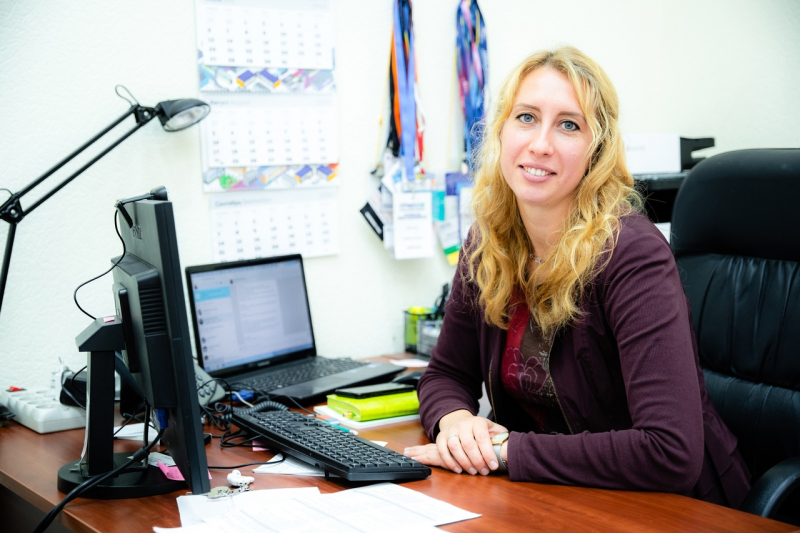
The teams with the best projects had the chance to present them in front of experts from the university’s industrial partner companies. Some of the participants of this final pitch session were Maxim Belov, brewery manager at Heineken, Alexandra Bazhanova, head of Mitsubishi Electric Russia North-West’s Department of Conditioning, Ekaterina Grigorieva, head of quality department at Jacobs Douwe Egberts Rus, Pavel Ivanov, deputy manufacturing executive at Coca Cola, Anton Vinogradov, head of development at the ECO Resource company, Alexander Isayev, lead engineer at the RYBSTANDART group, and many others.
Nine student teams took part in the pitch session. They presented projects on different topics: from innovative energy-efficient heating and cooling systems and efficient hogweed processing – to a unique probiotic beer recipe and immune stimulating additives for bees. These are the most promising projects of the School.
Everyone present marked the wide scale of topics covered at the defense.
“It is wonderful that young people are moving the industry forward and thinking about development. If they don’t do it, no one will. There were many truly outstanding ideas. Yes, it is not easy to implement them quickly due to logistics and financing issues or the specifics of the market, but we still have to at least think about them,” comments Alexander Isayev, lead engineer at the RYBSTANDART group.
Students picked research projects for their market research themselves after meeting the authors and research groups behind those projects. At the same time, lead researchers could also choose their desired student team, as each team completed a test task beforehand. According to Daria Mironova, the whole course was aimed at giving students the opportunity to try their hands at working and design a project that could be used in their future portfolios.
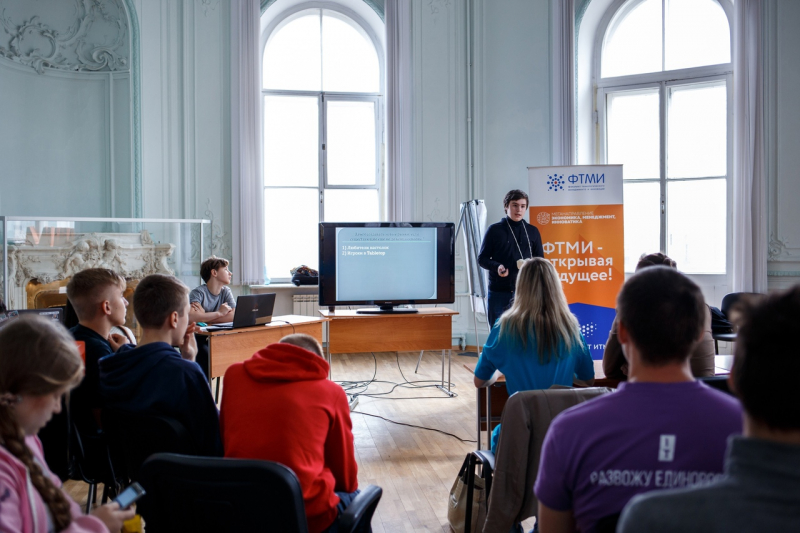
“The key thing is that the students conducted field research, communicated with potential clients, held user surveys, and reached out to representatives of business and the industry. Moreover, they had four months to boost their presentation skills and team work. In any case, upon graduation the students will be able to showcase their genuine experience with market research and designing a marketing plan,” stresses Daria Mironova.
The experts were originally meant to choose three teams with the most detailed, convincing, and comprehensive presentations, but as two teams garnered the same number of points, there had to be four winners.
The project “Natural immune-stimulating additives in beekeeping and the effect they have on bee survivability and honey quality” got the biggest number of points. The second place was taken by “Technology for functional beer with probiotic and antioxidant properties”. Finally, the third place was shared by “Developing technologies for production of a wine-stabilizing compound from residual yeast – by-product of fermentation plants” and “Processing hogweed to acquire useful chemical compounds.”
All winners will receive certificates from the Faculty of Technological Management and Innovation and additional points if they decide to apply to FTMI’s Master’s programs. Several teams have already received offers to implement their projects, for instance, from Heineken and ECO Resource.
“ITMO University strives to introduce new technologies and practices into the educational process – both in teaching and in testing. The pitch session organized by Daria Mironova was a great example of using an interdisciplinary approach in education. The projects were developed by FTMI students in collaboration with supervisors from our School. The experience was enriching for both parties. Forming a pool of representatives of our partner companies also required a lot of effort. I think that it is a noteworthy event and this format should be used more actively,” remarks Igor Baranov, head of the School of Biotechnology and Cryogenic Systems.
ITMO.NEWS spoke with the winners of the pitch session. We also asked the authors of the projects about the future development of their research and further collaboration with FTMI students.
Elizaveta Kirillina,
third-year student at FTMI, project “Natural immune stimulating additives in beekeeping and the effect they have on bee longevity and honey quality”
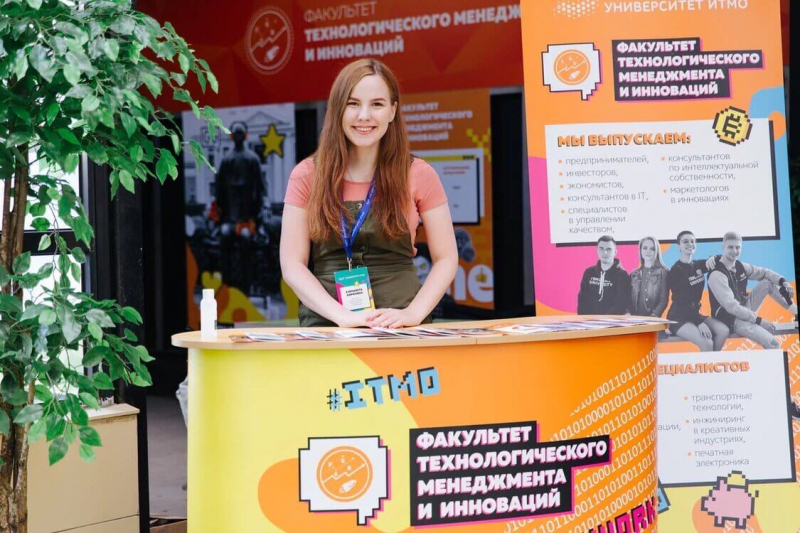
Early in the year, Daria Mironova organized meetings at which we met the researchers who briefly presented their projects. My team was immediately drawn to immune modulators for bees because environmental issues are a hot topic right now. Moreover, we liked the vibe of the researcher and we thought we’d enjoy working with her.
It was hard to find information because there is not a lot of coverage on beekeeping and colony collapse. One other challenge was looking for similar and competing products, as no one has made anything exactly like that before.
The course turned out to be useful in terms of practical skills in project work. Here, we were able to test the theoretical knowledge we acquired at other courses. It was interesting to test our competence with a project in biotechnologies, which we don’t know a lot about.
Our team was very efficient, it was a pleasure to work together. I believe it was not the last time we collaborated, especially now that we know each other so well.
Anastasia Sergeeva,
second-year Master’s student at the Faculty of Food Technology, program Food Quality and Safety, author of the project “Natural immune stimulating additives in beekeeping and the effect they have on bee longevity and honey quality”
It wasn’t my first collaboration experience: I take part in several courses where students from different fields meet in one team.
Previously, I only worked with Master’s and PhD students, but this time I also had the chance to take a look at how Bachelor’s students approach their tasks.
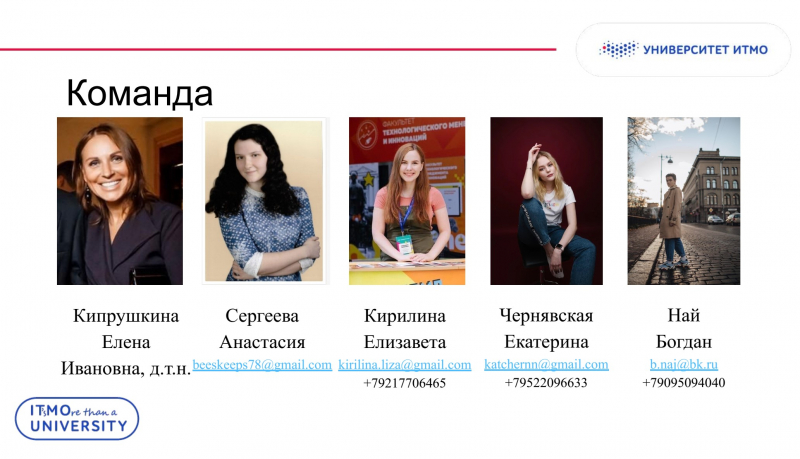
I want to mention the high skill level of FTMI students. I could see that they have acquired a good deal of knowledge over three years of studies and were also interested in developing further, which is very important. For that, I would like to thank FTMI professors and especially Anton Gopka, the dean of the faculty.
It was a meaningful collaboration and we worked rather efficiently. The students brought in a new idea for the implementation of our product and the form of this implementation. I had been looking for a solution without any luck. They also corrected my management shortcomings. I’m a student, too, only in the beginning of my research career, so I am not as well-versed in management and economics as those studying in the field.
I also want to note that all teams I worked with were active and interested. I was sorry I couldn’t choose all three teams to present my project. I suggested they work together, but that wasn’t so easy to implement. Generally, I am for creating big groups because everyone is unique and can generate their own ideas.
As for further plans for the project – first, I have to sort through the results and analyze them. Right now, I keep studying the effects of the additive, and I need to analyze a great amount of data – especially given that this topic is connected to my Master’s thesis. I will then continue the research at a bee farm in spring to verify the results.
Andrey Gritsenko,
third-year FTMI student, project “Technology for functional beer with probiotic and antioxidant properties”
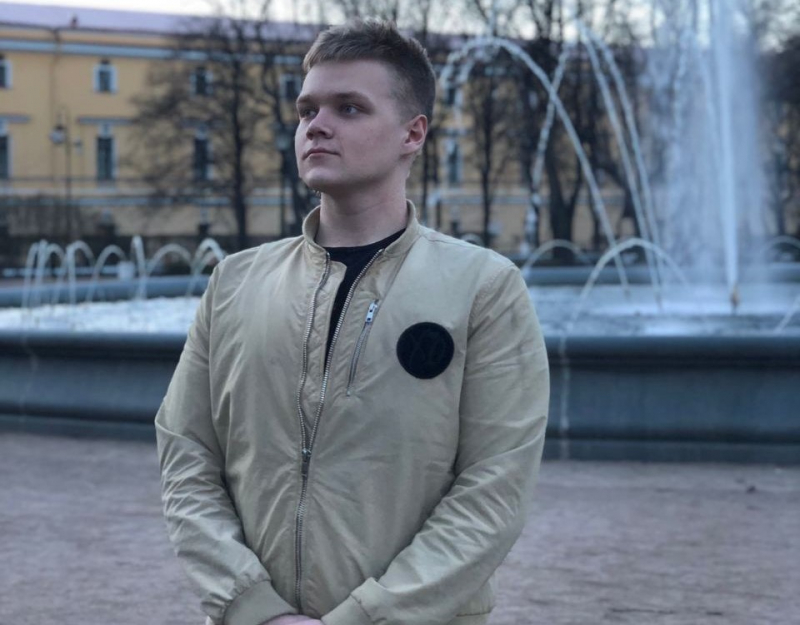
We chose this project first of all because we liked Dmitry Manshin’s presentation. And all in all the idea of probiotic beer – that you could actually make beer and alcohol kind of healthy – excited and amused us.
Naturally, it was hard to work with something so brand-new. We could hardly find any information because there were almost no similar products. We had to find the data that simply wasn’t open to the public – such research is usually bought for a lot of money. But we managed to do well despite all that. It was also difficult to understand the technology itself, for we are not chemists or specialists in food technology.
We didn’t expect that we’d be evaluated so high. Of course, it was very pleasant – and as an additional bonus we’ll get an ITMO.Tech certificate.
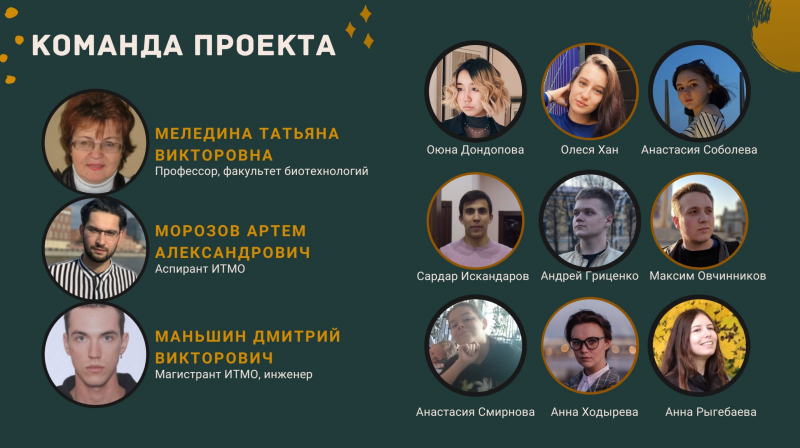
The course itself seemed rather difficult, and I’d have appreciated it if there were more lectures. Instead, we were given a task and mostly left to our own devices. But then we got into the idea, delved further into the subject, and joined forces with another team. I enjoyed working in a team.
The pitch session format was also an interesting one – I was impressed by the number of experts and the companies they represented.
We are planning to continue working with our developers, Dmitry Manshin and Artyom Morozov, especially since Heineken showed interest in our project. We got in touch with the researchers right after our performance and they confirmed that we’re still collaborating.
Dmitry Manshin,
second-year Master’s student at the Faculty of Biotechnology, program Beverage, Bread and Confectionery Products Biotechnology, author of the project “Technology for functional beer with probiotic and antioxidant properties”
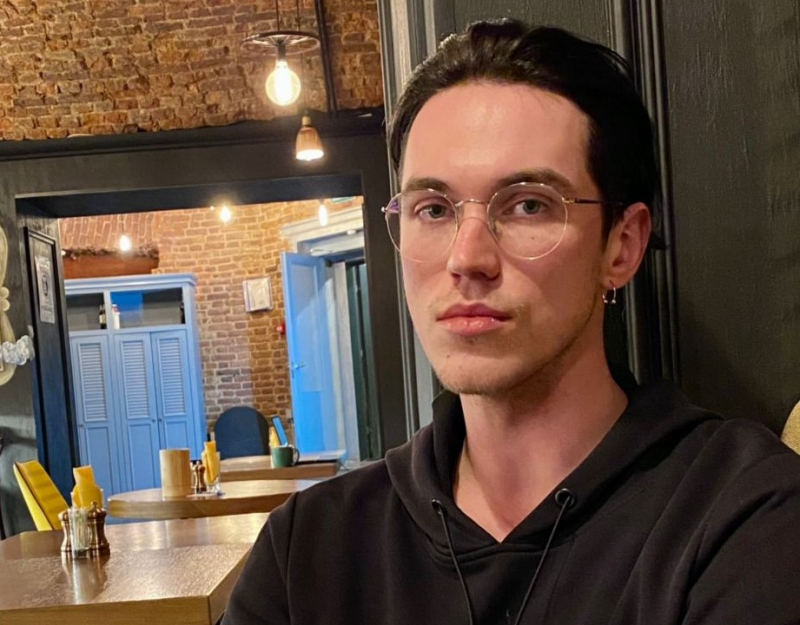
I truly think this experience has been beneficial to both parties. Researchers busy with implementing their ideas really need the opportunity to further promote and commercialize their projects – and generally apply their ideas in real life or the industry. That’s why it is so important and valuable for us, researchers, to collaborate with young professionals, students of FTMI.
On the other hand, I believe that for the students themselves it’s a great chance to apply theory in practice. It’s one thing to do marketing research for a dummy project and it’s something else completely to work with an actual project that is about to enter the market.
During this collaboration, new ideas kept coming in, and we were able to look at our project from different angles.
As for further collaboration, it’s a definite “yes”. We talked to the team right after the pitch session, expressed our gratitude, and made the decision to continue developing our project.
